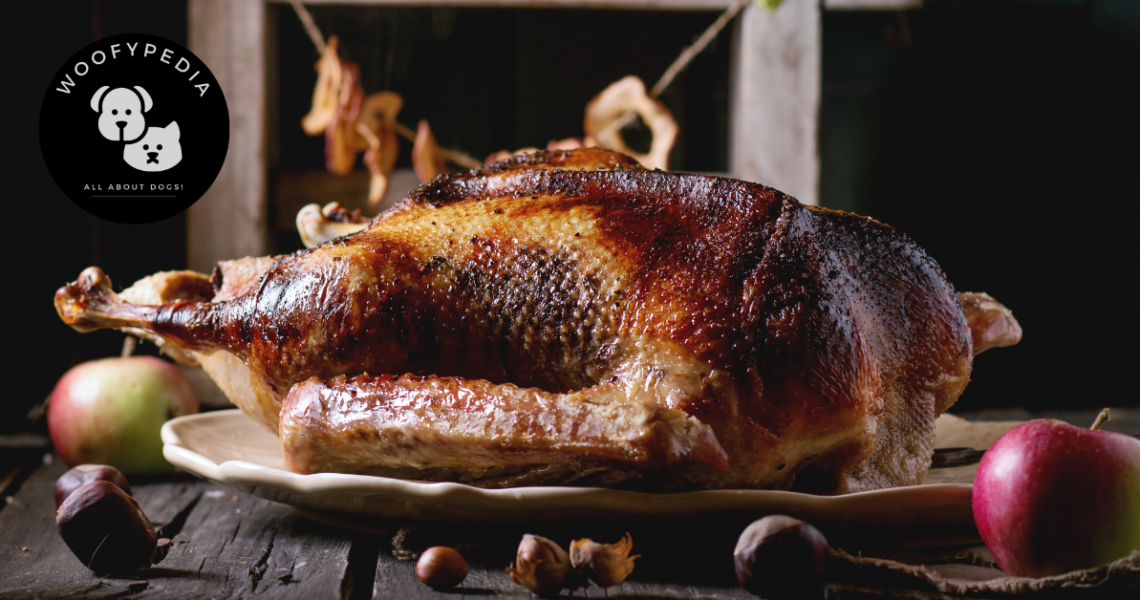Can Dogs Eat Roast Goose? What Every Dog Owner Needs to Know Before Sharing!
Can Dogs Eat Roast Goose?
Yes, dogs can eat roast goose in moderation, provided it is prepared without harmful seasonings, bones, or rich stuffing. While goose meat is rich in protein and healthy fats, the skin and seasoning can pose risks. Always consult your vet before introducing roast goose to your dog’s diet.
Can Dogs Eat Roast Goose? A Thorough and Authoritative Guide
As pet owners, it’s natural to wonder, can dogs eat roast goose? Including your furry companions in family meals is a common desire, especially during festive occasions when roast goose takes center stage. Goose is prized for its rich flavour, high nutritional value, and luxurious appeal. However, sharing this dish with your dog requires careful consideration of its preparation and potential risks.
This guide answers the pressing question, “Can dogs eat roast goose?” and explores everything you need to know to ensure your dog stays healthy and happy if you decide to offer them a bite.
Understanding Roast Goose: Why It’s Loved by Humans
Roast goose is a festive favourite, especially during celebrations like Christmas. Known for its rich, gamey flavour, roast goose is a showstopper on the dining table. However, what makes roast goose a delicacy for humans often makes it less suitable for dogs. Its high-fat content, crispy skin, and seasoning are all factors dog owners must consider before sharing.
But, can dogs eat roast goose prepared this way? The answer depends on how it is cooked and what parts of the goose you plan to share.
Can Dogs Safely Eat Goose Meat?
Plain goose meat, free of skin, bones, and harmful additives, is safe for dogs in moderation. This means the meat itself is fine, but traditional roast goose recipes can introduce risks.
The nutritional profile of goose meat makes it appealing for dogs:
- Protein: Essential for muscle repair and energy.
- Healthy Fats: In small amounts, fats from goose meat can support a shiny coat and healthy skin.
- Iron, Zinc, and Selenium: These minerals boost your dog’s immune system and contribute to overall health.
- Vitamin B6 and B12: Vital for brain function and energy metabolism.
However, while plain goose meat is safe, it’s important to understand why roast goose specifically requires careful preparation before feeding it to dogs.
What Makes Roast Goose Risky for Dogs?
So, can dogs eat roast goose straight from the table? Not without significant risks. The way roast goose is traditionally prepared can pose serious health concerns for dogs.
Harmful Ingredients and Seasonings
Roast goose is often flavoured with ingredients like garlic, onion, and excessive salt. These seasonings can make it unsafe for dogs. Garlic and onion are particularly toxic to dogs, causing gastrointestinal distress and potentially leading to anaemia. Salt, while safe in small amounts, can be harmful in the quantities typically found in seasoned roast goose.
The Dangers of Goose Skin
The crispy, fatty skin of roast goose is a highlight for humans, but it’s far too rich for dogs. Consuming fatty foods like goose skin can lead to digestive upset, weight gain, and even pancreatitis, a potentially life-threatening condition.
Cooked Goose Bones
Can dogs eat roast goose bones? Absolutely not. Cooked bones become brittle and can splinter when chewed, leading to choking hazards or internal injuries. Always remove all bones before offering goose meat to your dog.
Rich Gravies and Stuffings
Accompaniments like gravy and stuffing often contain ingredients that are toxic to dogs. For example, stuffing may include raisins (highly toxic), nuts, or butter-heavy recipes that are harmful. Gravy, with its high-fat and salt content, can also upset your dog’s stomach.
How to Safely Feed Roast Goose to Your Dog
The question, “Can dogs eat roast goose?” can be answered with a “yes,” but only if the goose is prepared properly. To make roast goose safe for your dog:
- Remove all skin, bones, and seasoning from the meat.
- Serve plain, unseasoned goose meat in small portions.
- Avoid sharing any stuffing, gravy, or other side dishes.
- Limit how often you give goose to your dog, as it is calorie-dense.
If you’re planning to prepare goose specifically with your dog in mind, consider roasting a small portion separately without any seasoning or additives.
What to Do If Your Dog Eats Too Much Roast Goose
If your dog consumes roast goose that includes skin, seasoning, or bones, it’s important to monitor them closely. Overeating fatty or seasoned foods can lead to symptoms like:
- Vomiting and diarrhoea
- Abdominal pain or bloating
- Lethargy
- Choking (if bones were ingested)
In severe cases, such as suspected pancreatitis or internal injuries from bones, contact your vet immediately.
Are There Safer Alternatives to Roast Goose?
If you’re still unsure about giving your dog roast goose, consider these alternatives:
- Plain, Cooked Chicken or Turkey: These lean meats are safer for dogs and easier on their digestive systems.
- Goose-Flavoured Dog Treats: Many commercial treats include goose as an ingredient, allowing your dog to enjoy the flavour without the risks.
- Specially Made Festive Dog Foods: Some pet food brands create holiday meals tailored to canine nutrition.
Conclusion: Can Dogs Eat Roast Goose?
Dogs can eat roast goose, but only under specific conditions. The goose must be plain, unseasoned, and free of skin and bones. While goose meat offers nutritional benefits, its high fat content means it should only be given in moderation as an occasional treat. Always consult your vet before introducing new foods to your dog’s diet.
The question, “Can dogs eat roast goose?” ultimately depends on how it is prepared. By following the advice above, you can safely include your furry friend in the festivities without compromising their health.
Return to “Can dogs eat Christmas Dinner …”
<< Can Dogs Eat Christmas Dinner? Discover the Foods That Are Safe and What to Avoid
